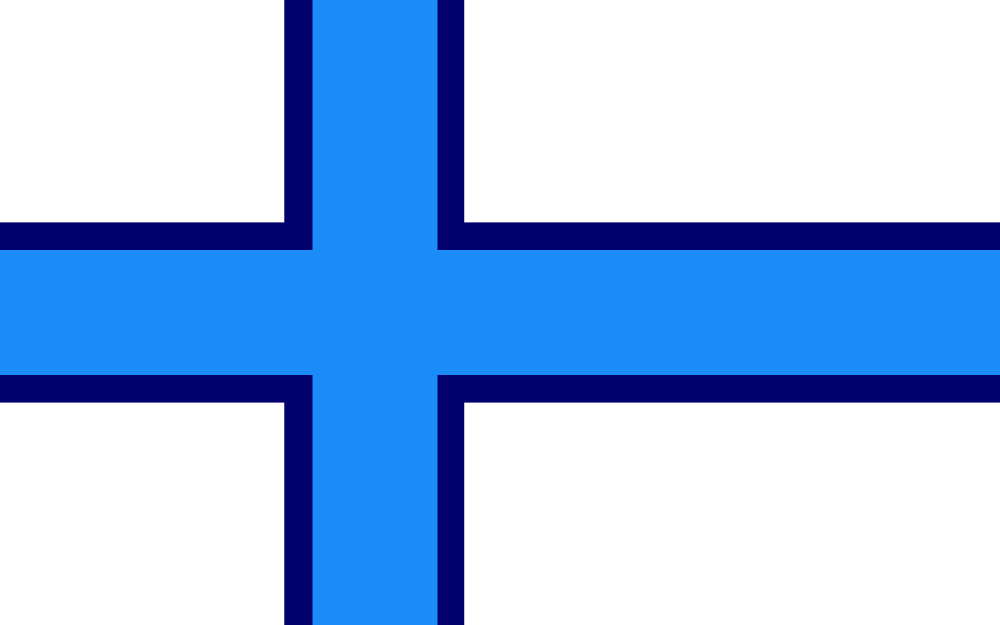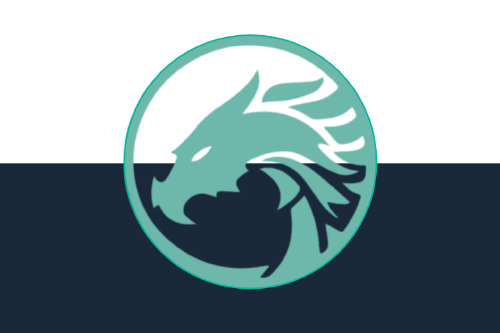| National Factbook |
| Flag: |

|
| Nation Name: |
Vikoland |
| Leader Name: |
Viktor II |
| Currency: |

Krona |
| National Animal: |

Fox |
| History: |
The first people to inhabit the area arrived around ~6000 years ago and are thought to have originated from islands to the South; these are the ancestors of the Resa people, the nomadic people now inhabiting Southern and central Vikoland. However, no centralised states were established until the migration of the Germanic peoples ~1500 years ago from. These Germanic tribes arrived in The area as refugees escaping persecution and found safety on the Northernmost island of the Archipelago. In Vikolandic mythology, Runda Viken (the round cove), where the city of Rundhavn now sits, was the first landing point. These tribes were initially only united by language, but because of their shared history and their newly shared land, the cultures of these tribes converged to form the singular Vikolandic identity. Within 200 years of arrival, two main Kingdoms formed: Flyktmark, centred on the city of Rundhavn, and Västköping, centred in the city of the same name, known as West and East Vikoland respectively. Following a period of political instability, caused by the arrival of people on its southern border and an island-wide famine, that disproportional impacted the Kingdom of Västköping, the two countries voted to united in personal union, forming the United Kingdom of Vikoland, with its capital in Rundhavn.
Following many centuries of relative seclusion from the rest of the world, new aggressive nations on its Southern border threatened Vikloland's security. Increasing tensions over the location of the border eventually lead to the devastating 'War of Southern Aggression', in which Vikoland was forced to defend itself from better armed enemies. This war only ended after a revolution in the attacking nation, and its subsequent collapse, but not before wreaking havoc on much of the country's environment and infrastructure, and draining the treasury. Following the war, Vikoland committed to a neutral foreign policy in an effort to prevent such devastating events from occurring in the future, leading to a period of near complete isolation. The country's honourary name 'The Most Serene Kingdom' was bestowed upon it by other states during this time of peace. Following successful negotiations and the normalising of relations with its southern neighbour, the parliament voted to reopened its borders. Since then, Vikoland became more involved in World affairs. |
| Geography |
| Continent: |
Europe |
| Land Area: |
44,256.85 sq. km |
| Terrain: |
Northern Vikoland is made up of smooth rolling hills and is almost entirely covered by arable farmland and small villages. The farms are separated by forested areas which host a range of flora and fauna, including the national animal the arctic fox, whose habitats are usually burrows made under the numerous pine trees. All of the country's largest cities lie on the Northern coastline where the waters are inhabited by a plethora of fish species, most notably trout. Southern Vikoland is heavily forested and receives less rainfall due to being inland, thus it is unsuitable for agriculture. A lot of this region is covered by protected national parks. The most famous national park is Röderbergen, which is renowned across Refugia for its red hills (caused by iron oxide). The longest river in Vikoland, the Åpørld river, also begins here, continuing to flow North to the Ocean, with the city of Vargstad lying at the mouth. |
| Highest Peak: |
Söderhög,
179 meters
|
| Lowest Valley: |
Åpørld river basin,
-4 meters
|
| Climate: |
The climate of Vikoland varies widely, with Summer and Winter having significant temperature differences. The nation lies in a high-pressure area so precipitation remains low year round however, the coastal wind does bring in humidity which can lead to heavy rain. The Winter is characterised by snow and frost whilst the Summers can be very sunny and temperatures exceed what would be expected for a country at the same latitude. Winds can reach high speeds so storms are common however, these rarely cause a lot of damage. |
| People & Society |
| Population: |
2,864,424 people |
| Demonym: |
Vikolander |
| Demonym Plural: |
Vikolanders |
| Ethnic Groups: |
Vikolandic - 93.7%
Refugi - 6.1%
Resa - 0.2% |
| Languages: |
Vikolandic - 98.6%
English - 89.0%
Melenavenian - 52.0% |
| Religions: |
Atheism - 86.4%
Lutheranism - 13.6% |
| Health |
| Life Expectancy: |
82 years |
| Obesity: |
21.5% |
| Alcohol Users: |
76.4% |
| Tobacco Users: |
5.1% |
| Cannabis Users: |
8.9% |
| Hard Drug Users: |
0.1% |
| Economy |
| Description: |
Vikoland has a capitalist economy, however state owned companies are common and business is regulated to protect the citizens. |
| Average Yearly Income: |
$111.62 |
| Gross Domestic Product (GDP): |
$4,675,310,864.00 |
| GDP per Capita: |
$1,632.20 |
| Gross National Income (GNI): |
$2,667,471,100.00 |
| Industries: |
The economy is highly specialized and led by the Information Technology industry, with major contributions from Tourism, Retail, and Book Publishing. |
| Military |
| History: |
|
| Soldiers: |
165,000 |
| Tanks: |
13,750 |
| Aircraft: |
825 |
| Ships: |
165 |
| Missiles: |
0 |
| Nuclear Weapons: |
0 |
| Last Updated: 04/11/2025 08:35 pm |














